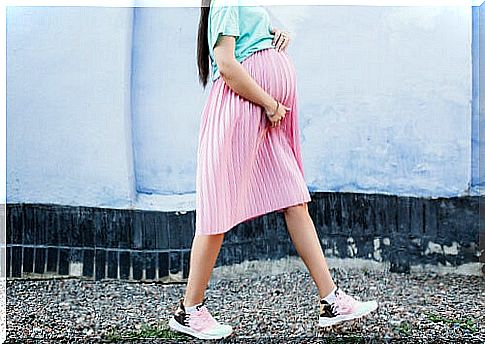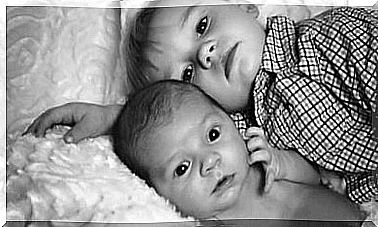Dyspnea During Pregnancy

Dyspnea during pregnancy is common in expectant mothers. The concept refers to the difficulty that arises when breathing. It is the result of adaptation to bodily changes during pregnancy and also due to the complications of this period. Dyspnea is mainly associated with the cardiovascular and respiratory system.
Breathing difficulties during pregnancy can be explained by the baby’s growth, the effect of hormones and the modification of the respiratory system. The combination of all these factors can be really unsettling for many expectant mothers, as more than half of them will eventually feel short of breath.
Dyspnea during pregnancy is usually experienced while performing an activity or resting for an extended period of time.
There are two types of dyspnea: acute and chronic. In acute dyspnea, shortness of breath lasts a few weeks, whereas in chronic it lasts more than a month.
Luckily, this discomfort is not dangerous for the baby, and some exercises can alleviate the discomfort a little, even if only temporarily.
Greater presence in the third trimester of pregnancy
As we mentioned earlier, dyspnea causes difficulty breathing because the uterus puts pressure on the diaphragm, which causes breathing difficulties. Complications are accentuated and are more present in the third trimester of pregnancy.
In this, and even in the second trimester of pregnancy, the uterine cavity expands due to the growth of the fetus. Therefore, women are likely to experience difficulty breathing more often.
Common symptoms of dyspnea during pregnancy
Here are some of the common signs and symptoms of dyspnea during pregnancy:
- Shortness of breathe.
- Body weakness.
- Tiredness.
- Bluish discoloration of nails and skin.
- Concern.
- Abnormal breathing patterns.
- Increased heart rate.

Advice for treating dyspnea during pregnancy
Below, we list some methods that will help you to relieve dyspnea in pregnancy:
1.- Avoid tasks that require strength
The first advice is to try to relax from time to time during pregnancy. You shouldn’t put too much effort into work or household chores, as this can make your dyspnea even worse.
Taking breaks from time to time will allow your body to recover and relax you more. This will help to improve your breathing problems in the nine months of pregnancy.
2.- Practice breathing exercises
Breathing exercises are one of the best remedies to combat shortness of breath and to alleviate the symptoms of dyspnea. These activities will help you increase your lung capacity and, as a result, will allow you to breathe better.
3.- Good body posture
Good body posture is very helpful in reducing dyspnea. While sitting, you should keep your shoulders back.
This position will provide ample room for the lungs to expand. When sleeping, it is recommended to keep your body up by placing more pillows behind your back.
4.- Change position
If you feel out of breath and uncomfortable in one position, try changing to one that makes you more relaxed. This will help you breathe more easily.
5.- Aerobic exercises
Lastly, light aerobic exercise is always good during pregnancy. Often, not being in shape during pregnancy can increase your difficulty breathing. The baby also needs oxygen to grow well.

Therefore, you should also consult your doctor to learn some aerobic exercises in order to keep in shape. These workouts also keep the cardiovascular and respiratory system functioning smoothly.
It is common to experience dyspnea during pregnancy; and the above measures will be of great help in treating and controlling dyspnea. If you experience severe symptoms such as nausea, prolonged breathing problems, extreme exhaustion or severe chest pain you should see your doctor immediately.
If you can’t control your breathing difficulty, lack of oxygen can hurt both you and your developing baby. As a result, it is extremely important to be careful with the troubling symptoms and work towards measures to effectively treat dyspnea.









